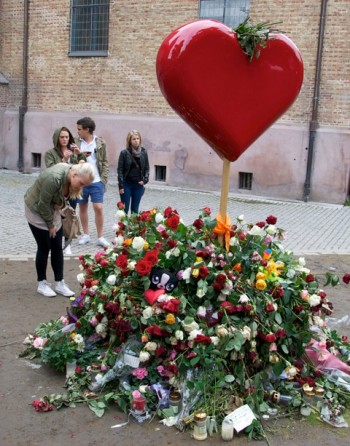A new study shows that Norwegians now have more confidence not only in each other but in other ethnic groups, in their government and in the Parliament. While acts of terrorism can instill fear and suspicion in the societies they hit, last month’s attacks in Norway seem to have had the opposite effect.

The study, conducted by Norway’s Institute for Social Research (Institutt for samfunnsforskning, ISF) and the Rokkansenter in Bergen, measured among other things the response of Norwegians to the same question posed both before and after the attacks on July 22: “Would you say that you can rely on most people, or that people can’t be careful enough” in their dealings with others. Those answering were asked to place themselves on a scale of one to 10 between the two contrasting points: “Then we could measure how terror has affected our attitudes and behaviour,” the researchers wrote in a report on their study published Wednesday on ISF’s website and in newspaper Aftenposten.
The answers show that 52 percent responding were more confident in their fellow human beings after the attacks, while only 23 percent were less confident. Levels of confidence in family, friends and neighbours was unchanged, but confidence in strangers or “those we don’t know well” increased. This may reflect a response to how strangers helped one another right after the bomb went off in the government complex in Oslo, for example, and how hundreds of thousands of Norwegians quickly reacted to the attacks with flower memorials and peaceful demonstrations.
The attacks boosted confidence among people and institutions, especially the government and the Parliament, noted the researchers, while social media proved a powerful tool in mobilizing them into such massive public displays as the “rose demonstration” in Oslo and in other towns and cities around the country. Many also responded that they would be more likely to vote in upcoming elections.
“Instead of being consumed by hate, divisiveness and conflicts, civil society (in Norway) appears shortly after the terrorist attacks to be more confident, mobilized and engaged,” wrote researchers Bernard Enjoiras, Dag Wollebæk, Kari Steen-Johnsen and Guro Ødegård.
They note that there’s no way of knowing how long the feelings of confidence will last, but stressed that Norwegian society seems to have been strengthened by attacks, not weakened by them.
The study also indicated that the vast majority of Norwegians don’t fear future attacks. Only 2.5 percent responded that they were “extremely worried” about future attacks, while a corresponding figure for Americans right after the Oklahoma City bombing in 1995 was 38 percent.
The results are part of the researchers’ study entitled on “What does terror do to us as a civil society?” Aftenposten also interviewed students at a local high school, where they seemed to confirm the study’s findings. One student from an immigrant family said he now feels “more included” in Norwegian society while others reported receiving “nice gestures” from strangers, more smiles on the streets and “many questions of concern over how I’m doing,” according to one 18-year-old.
Views and News from Norway/Nina Berglund
Join our Readers’ Forum or comment below.
To support our news service, please click the “Donate” button now.

